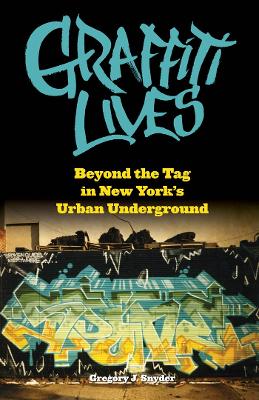Alternative Criminology
2 total works
Inside the complex and misunderstood world of professional street skateboarding
On a sunny Sunday in Los Angeles, a crew of skaters and videographers watch as one of them attempts to land a “heel flip” over a fire hydrant on a sidewalk in front of the Biltmore Hotel. A staff member of the hotel demands they leave and picks up his phone to call the police.Not only does the skater land the trick, but he does so quickly, and spares everyone the unwanted stress of having to deal with the cops. This is not an uncommon occurrence in skateboarding, which is illegal in most American cities and this interaction is just part of the process of being a professional street skater.
This is just one of Gregory Snyder’s experiences from eight years inside the world of professional street skateboarding: a highly refined, athletic and aesthetic pursuit, from which a large number of people profit. Skateboarding LA details the history of skateboarding, describes basic and complex tricks, tours some of LA's most famous spots, and provides an enthusiastic appreciation of this dangerous and creative practice.
Particularly concerned with public spaces, Snyder shows that skateboarding offers cities much more than petty vandalism and exaggerated claims of destruction. Rather, skateboarding draws highly talented young people from around the globe to skateboarding cities, building a diverse and wide-reaching community of skateboarders, filmmakers, photographers, writers, and entrepreneurs. Snyder also argues that as stewards of public plazas and parks, skateboarders deter homeless encampments and drug dealers. In one stunning case, skateboarders transformed the West LA Courthouse, with Nike’s assistance, into a skateable public space.
Through interviews with current and former professional skateboarders, Snyder vividly expresses their passion, dedication and creativity. Especially in relation to the city's architectural features—ledges, banks, gaps, stairs and handrails—they are constantly re-imagining and repurposing these urban spaces in order to perform their ever-increasingly difficult tricks.
For anyone interested in this dynamic and daunting activity, Skateboarding LA is an amazing ride.
A rare look into the world of contemporary graffiti culture
On the sides of buildings, on bridges, billboards, mailboxes, and street signs, and especially in the subway and train tunnels, graffiti covers much of New York City. Love it or hate it, graffiti, from the humble tag to the intricate piece (short for masterpiece), is an undeniable part of the cityscape.
In Graffiti Lives, Gregory J. Snyder offers a fascinating and rare look into this world of contemporary graffiti culture. A world in which kids, often, shoplift for spray paint, scale impossibly high places to find a great spot to “get up,” run from the police, journey into underground train tunnels, fight over turf, and spend countless hours perfecting their style. Over the ten years Snyder studied this culture he even created a few works himself (under the moniker “GWIZ”), found himself serving as a lookout for other artists engaged in this illegal activity, spent time in the train tunnels in search of new work, created a blackbook for writers to tag, and took countless photographs to document this world — over sixty included in the book.
A combination of amazing “flicks” and exhilarating prose, Graffiti Lives is ultimately an exploration into how graffiti writers define themselves. Snyder details that writers are not bound together by appearance or language or birthplace or class but by what they do. And what they do is reach for fame, painting their names as prominently as they can. What’s more, he discovers that, though many public officials think graffiti writing will only lead to other criminal activity, many graffiti writers have turned their youthful exploits into adult careers—from professional aerosol muralists and fine artists to designers of all kinds, employed in such fields as tattooing, studio art, magazine production, fashion, and guerilla marketing. In fact, some of the artists featured have gone on to international acclaim and to their own gallery shows. Snyder’s illuminating work shows that getting up tags, throw-ups, and pieces on New York City’s walls and subway tunnels can lead to getting out into the city’s competitive professional world. Graffiti Lives details the exciting, risky, and surprisingly rewarding pursuits of contemporary graffiti writers.

